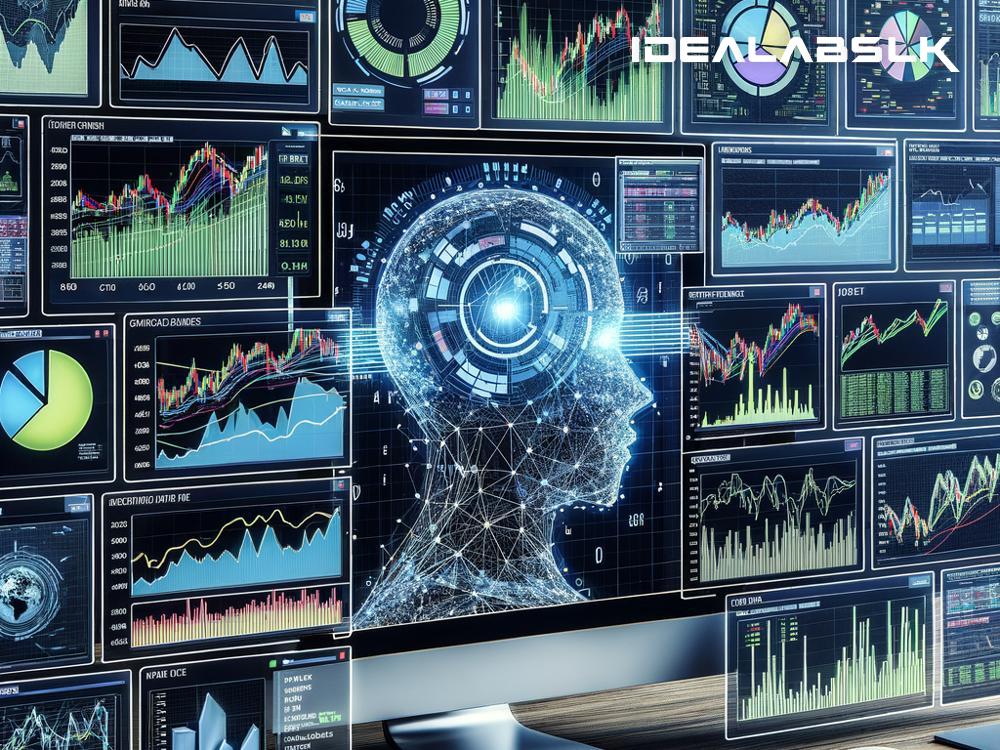AI for Trading: How AI-Powered Algorithms are Optimizing Stock Trading
In the high-stakes world of stock trading, even a split-second decision can lead to a massive win or loss. Over the past few years, Artificial Intelligence (AI) has started to play a crucial role in stock trading, completely transforming the scene. To put it simply, AI-powered algorithms are like highly intelligent robots that can analyze huge amounts of data, make forecasts, and execute trades at superhuman speeds. Let's dive deeper into how AI is reshaping the stock trading landscape.
AI in a Nutshell
First up, let's briefly talk about what AI is. Artificial Intelligence, in the context of stock trading, refers to machines or software that can perform tasks usually requiring human intelligence. These tasks include learning from past data, making decisions, and solving problems. AI in stock trading mainly involves machine learning algorithms—where the machine teaches itself to make better decisions over time based on historical data.
The Role of AI in Stock Trading
1. Real-time Data Analysis
One of AI's biggest advantages is its ability to analyze vast amounts of data rapidly. Stock markets generate an enormous amount of data daily, from stock prices and trade volumes to news articles and social media posts. AI algorithms can sift through this data in real-time, picking up trends and important indicators that might take a human days or weeks to notice.
2. Predictive Analytics
AI algorithms are like fortune tellers for the stock market but grounded in data and logic. They use historical market data and patterns to predict future stock price movements. This capability doesn't mean they can predict with 100% accuracy – the stock market is too unpredictable for that. However, they can provide insights that help traders make more informed decisions.
3. Automated Trading
Also called algorithmic trading, this involves the use of AI algorithms to execute trades based on specified criteria, such as buying a stock when its price drops to a certain level. This automation allows for rapid and efficient trading that can capitalize on opportunities the moment they arise, much faster than a human trader could.
4. Risk Management
Investing in stocks is inherently risky. AI can help mitigate these risks by continuously analyzing the market conditions and adjusting the trading strategies accordingly. AI systems can recognize when the market is too volatile and can reduce trading activity to lower potential losses.
5. Portfolio Management
AI doesn’t only help with buying and selling individual stocks; it can also manage entire investment portfolios. Known as 'robo-advisors', these AI systems can tailor a diversified investment portfolio based on an individual's risk tolerance and investment goals, adjusting the portfolio over time as the market conditions change.
The Impact of AI on Stock Trading
Increased Efficiency
With AI handling data analysis and trades, stock trading has become far more efficient. Trades can be executed at the optimal time, and transactions are faster, which can lead to better returns on investment.
Democratization of Trading
AI has also made advanced trading strategies more accessible to the average investor. Tools like robo-advisors allow individuals without a deep understanding of the stock market to still make informed investment choices.
Market Stability Concerns
However, it's not all positive. The widespread use of AI in stock trading has led to concerns about market stability. Because many AI systems might make similar decisions based on the same market conditions, it could potentially lead to market movements that are more exaggerated than usual, both upwards and downwards.
The Future of AI-Powered Stock Trading
The potential of AI in stock trading is enormous, and we've only just begun to scratch the surface. As AI technology continues to evolve, we can expect these algorithms to become even more sophisticated, making even more accurate predictions and further optimizing the trading process.
However, it's crucial to remember that AI is a tool, not a magic wand. Despite its advanced capabilities, market unpredictability remains a constant. The most successful traders will likely be those who can best leverage AI's strengths while compensating for its weaknesses.
In conclusion, AI-powered algorithms are revolutionizing stock trading by optimizing every aspect of the process, from data analysis and prediction to execution and risk management. As we look toward the future, the integration of AI into stock trading seems set to deepen, promising to make the market more accessible, efficient, and, hopefully, profitable for everyone involved.

